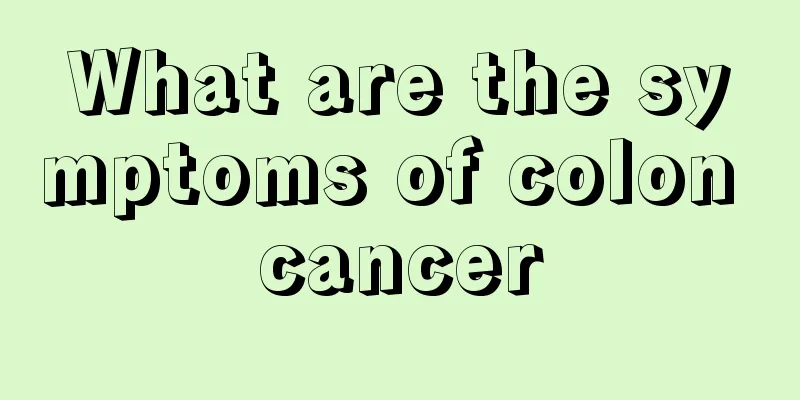What are the symptoms of colon cancer

|
The early symptoms of colon cancer are not typical and are easily ignored by patients. In the early stage of the disease, there may be symptoms such as abdominal distension and indigestion. As the disease progresses, the patient's body will gradually become thinner and lose appetite. As the disease progresses, the patient's bowel habits will change and blood in the stool will appear. The following is an introduction to the symptoms of colon cancer: (I) Early symptoms: In the earliest stage, there may be abdominal distension, discomfort, and indigestion-like symptoms, followed by changes in bowel habits, such as increased bowel movements, diarrhea or constipation, and abdominal pain before defecation. Later, there may be mucus in the stool or mucus-purulent blood in the stool. (B) Symptoms of poisoning: Due to the blood loss caused by tumor ulceration and the absorption of toxins, patients may often experience anemia, low fever, fatigue, weight loss, edema, etc., among which anemia and weight loss are particularly prominent. (III) Manifestations of intestinal obstruction: Symptoms of incomplete or complete low-position intestinal obstruction, such as abdominal distension, abdominal pain (distension or colic), constipation or constipation. Physical examination can reveal abdominal distension, intestinal type, local tenderness, and strong bowel sounds. (IV) Abdominal mass: It is a tumor or a mass that has infiltrated and adhered to the omentum and surrounding tissues. It is hard and irregular in shape. Some of them may have a certain degree of mobility along the intestinal tract. In the late stage, the tumor infiltration is more severe and the mass may be fixed. (V) Late stage manifestations: Signs of liver metastasis such as jaundice, ascites, edema, as well as cachexia, a mass in the anterior rectal fossa, and enlarged supraclavicular lymph nodes, which are manifestations of distant tumor spread and metastasis. The late-stage symptoms of colon cancer are very obvious, but the best time for treatment has been lost. For malignant tumors, timely detection of the disease is a very important aspect, but the early symptoms of colon cancer are generally not obvious. It is recommended to have regular physical examinations, especially for high-risk groups, so that the disease can be detected in time. |
<<: What are the early symptoms of colon cancer
>>: What are the symptoms of colon cancer
Recommend
What is the TSH value after hemisection of thyroid cancer
Thyroid cancer is a malignant tumor that originat...
Reasons for brown spots on the belly
No one wants to have spots on themselves. You kno...
What is the difference between myopia and astigmatism?
Everyone is very familiar with the degree of myop...
What are the hazards of air conditioning humidifiers
We know that once the air is dry, our skin will e...
Symptoms and treatments of gastrointestinal cancer
Gastrointestinal cancer is caused by the malignan...
How long after stopping medication can I get a vaccination
Generally speaking, children need to get injectio...
Can meniscus degeneration be restored?
The meniscus is a very important bone in the huma...
What should liver cancer patients eat to recover? Liver cancer patients should be careful of these four types of food
For patients with liver cancer, a healthy diet is...
The main function of plasmin
The human body contains many trace elements and m...
Photos of pooping in the early stages of rectal cancer
In the early stages of rectal cancer, the stool i...
What are the symptoms of small triple positive
There are many hepatitis B patients in our lives....
What does a tongue ulcer look like?
Oral ulcers are a common condition for many peopl...
There are many small red bumps on my chest
Many times, we will have many small red bumps on ...
Bladder cancer complete resection cure rate
Does complete resection of bladder cancer have a ...
What are the clinical manifestations of colon cancer
In our daily life, the incidence of colon cancer ...









